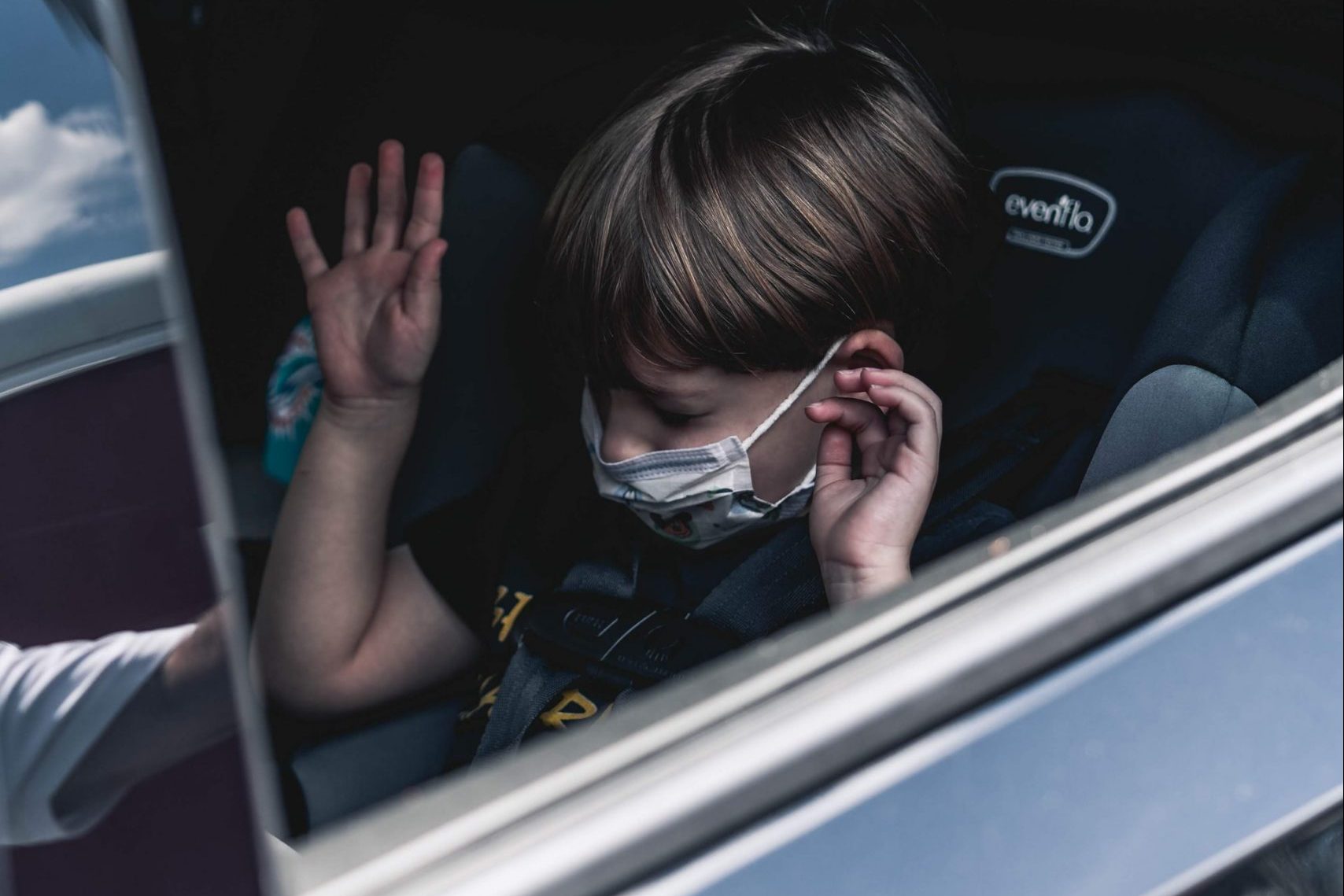Boston Moms is thrilled to share this guest post written by Rita Morris, a local parent coach, certified life coach, and licensed mental health counselor.
Who could have ever imagined we would be living through a pandemic in 2020? COVID-19 has meant different things for all of us, but one thing we can all agree on is that it has brought challenges beyond our imaginations! Now we are about to face another… the return to school! For some of us, school will be in person; for others, it will be virtual. Some will do a combination. The one common denominator is that school will be quite different than ever before.
The return to school is a big step for all of us and will likely be met with mixed emotions for parents and children alike. Some will be relieved and excited; others will be sad, reluctant, and anxious.
How can we best prepare and support our kids through this transition?
Check in with yourself and your kids
First, we need to take care of ourselves. How are you feeling about the return to school? Process your own emotions so you don’t impose them on your kids.
When you are ready and can maintain a sense of calm, have a conversation with your kids. Ask them how they are feeling about going back. What are their thoughts? Each child will have their own unique set of feelings about it, depending upon what this time has looked like for them. Listen to your child, hear their concerns, validate, normalize, and acknowledge their feelings.
Be armed with information
The more information you have, the better prepared you and your children will be. At this point, most districts are preparing for three possible scenarios — all virtual, a partial return, and a full return. Share this information with your kids and let them know school will be different this year. They may need to wear masks, seating arrangements may be different, etc. Giving your kids this information will help them understand and comply with the guidelines in place.
Limit the amount of news your child is taking in — there is a lot of misinformation out there. Choose one reliable source, and together educate yourselves about the virus. Remember knowledge is power.
Discuss strategies to adapt and manage worries
Reassure your kids, but be careful not to overdo it — too much reassurance perpetuates the anxiety. Instead, listen, ask your kids what they think will help, and focus on possible strategies. Ask them how they adapted to staying home, to online learning, virtual visits with friends and family, etc. What helped them adapt, and how can they utilize those skills and coping mechanisms to help them now? In this way, your kids recognize their ability to adapt, manage their feelings, and adopt a growth mindset.
Remind your kids that things could change, depending on surges of the virus. Knowing the situation is fluid may present its own challenges. Help your kids to be aware of a few things they know they can count on — they will be in school in some fashion, they can connect at least virtually to their friends, Friday night is family pizza/game night, etc. This way, when/if things do change, they have their go tos.
Create a worry box, decorate it, and be sure to secure the lid so that you cannot open it. When you or your children get anxious, write your feelings down on a scrap of paper and put that paper in the box, as if you are putting it away. Ask your kids if their worry were a color, what color would it be, what shape would it be? Ask them to visualize the color getting lighter, and the shape getting smaller, as if their worries are too. These are things that can be done repeatedly whenever you or they become overwhelmed.
Take care of yourself — and ensure your kids are, too
Be sure everyone is taking care of themselves, physically and emotionally. Eating well, exercising, and getting adequate rest will help with keeping anxiety in check and keeping immune systems strong. These things can serve to give a sense of control, which always eases anxiety.
Above all, keep the conversation going and remember that transitions are an ongoing process, not a one-time event. Be kind to yourself and be patient with your kids — these are unprecedented times that require a little extra TLC!

As a mom of two kids with ADHD and anxiety, Rita Morris has struggled on this journey of motherhood. It is her struggle that inspires her learning, and her learning inspires her coaching. She has always believed her children are her greatest teachers.
Rita has a master’s degree in education and is a certified life coach and a licensed mental health counselor. She spends most of her professional life as a parent coach. Before she came to understand the impacts of anxiety and ADHD on her own kids, she was full of fear and worry and felt so unprepared for the challenge. As we moms do, she went on a mission to educate herself so she could parent her kids to the best of her ability. This knowledge was so powerful that she began to investigate professional possibilities. She completed some training and launched her parent coaching career.
Rita is a Pilates lover, an audiobook junkie, an avid crafter, and could shop for days. Above all else, she adores being with her family and friends.













